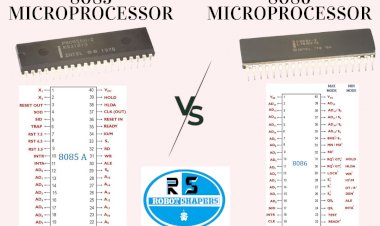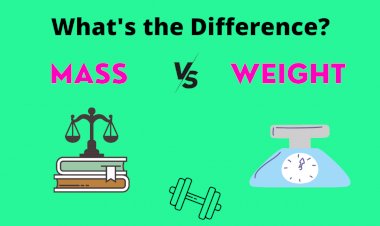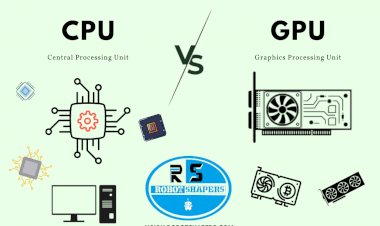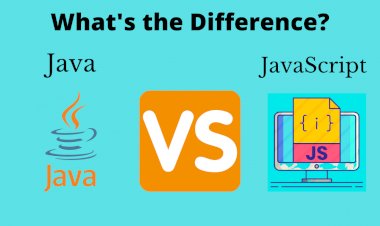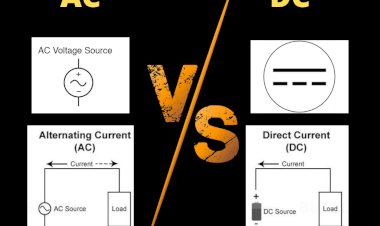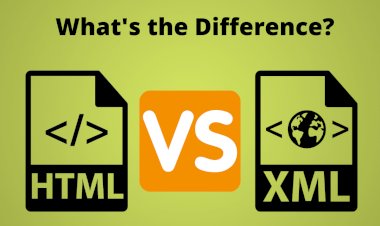Difference Between C programming language and C++ programming language
The following are the differences between C and C++: C++ is an object oriented programming language. C is a structural programming language. C is a subset of C++.
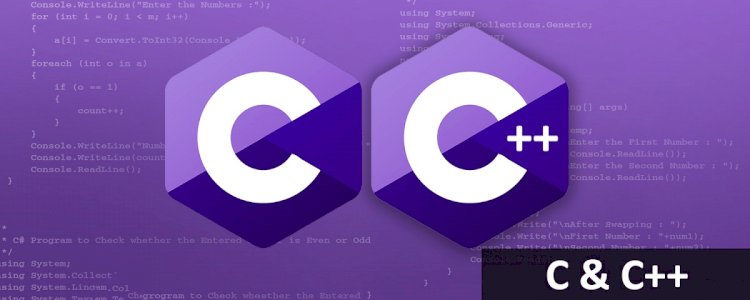
C
C is a general-purpose, procedural computer programming language supporting .
A successor to the programming language B, C was originally developed at Bell Labs by Dennis Ritchie between 1972 and 1973 to construct utilities running on Unix. It was applied to re-implementing the kernel of the Unix operating system. It has become one of the most widely used programming languages, with C compilers from various vendors available for the majority of existing computer architectures and operating systems. C has been standardized by the ANSI since 1989 (ANSI C) and by the International Organization for Standardization (ISO).
C is an imperative procedural language. It was designed to be compiled to provide low-level access to memory and language constructs that map efficiently to machine instructions, all with minimal runtime support.
C++
Where as C++ is a general-purpose programming language invented by Bjarne Stroustrup as an extension of the C programming language, or "C with Classes". The language has expanded significantly over time, and modern C++ now has object-oriented, generic, and functional features in addition to facilities for low-level memory manipulation. It is almost always implemented as a compiled language.
C++ was designed with a bias toward system programming and embedded, resource-constrained software and large systems, with performance, efficiency, and flexibility of use as its design highlights.
C++ is standardized by the International Organization for Standardization (ISO), with the latest standard version ratified and published by ISO in December 2017 as (informally known as C++17). The C++ programming language was initially standardized in 1998. The current C++17 standard supersedes these with new features and an enlarged standard library. Before the initial standardization in 1998, C++ was developed by Danish computer scientist Bjarne Stroustrup at Bell Labs since 1979 as an extension of the C language; he wanted an efficient and flexible language similar to C that also provided high-level features for program organization.
Here’s the basic difference between the C and C++ Language:-
Basis ofdistinction |
C |
C++ |
|
Designed by |
Dennis Ritchie |
Bjarne Stroustrup |
|
First appeared |
1972-1973 |
1985 |
|
Programming type |
It is a Procedural language. |
It is an Object-Oriented Programming language. |
|
Approach
|
C language follows Top Down programming Approach. |
C++ follow bottom-up programming approach. |
|
File extension
|
The file extension of a C program is .c / .h |
The file extension of a C++ program is .cpp/.C/.cc/.cxx/.c++/.h /.hh/.hpp/.hxx/.h++ |
|
Program division
|
In C programming language, a big program code is divided into small pieces which are called functions. |
In C++ programming language, a big program code is divided into Objects and Classes. |
|
Structure
|
Structure in C does not provide the feature of function declaration. |
Structure in C++ provides the feature of declaring a function as a member function of the structure. |
|
Inline function
|
It does not allow inline function. |
It supports inline function.
|
|
Standard I/O operations
|
In C, scanf and printf are used for the standard input and output. |
In C++, cin» and cout« are used for standard input and output operations. |
|
Data Security
|
In C language the data is not secured. |
Data is secure, so it can't be accessed by external functions. (Using Encapsulation concept of OOPs) |
|
Ease of Coding
|
C is an older programming language that is described as Hands-on. In this language, you must tell the program to do everything. |
C++ is an extension language of C. It allows for the highly controlled object-oriented code. |
|
Compatibility with other languages |
C is not compatible with another language.
|
C++ is compatible with the other generic programming languages. |
|
Pointer
|
C supports only Pointers. |
C++ supports both pointers and references. |
|
Variable |
In C, the variable should be defined at the beginning of the program. |
C++ allows you to declare variables anywhere in the function. |
|
Point of Focus |
C focuses on the steps or procedures that are followed to solve a problem. |
C++ emphasizes the objects and not the steps or procedures. It has higher abstraction level. |
|
Function Overloading |
C does not allow you to use function overloading. |
C++ allows you to use function overloading. |
|
Data Types |
C language does not allows you to declare String or Boolean data types. It supports built-in and primitive data types. |
C++ supports String and Boolean data types |
|
Exception Handling
|
C does not support Exception Handling. However, it can be performed using some workarounds.
|
C++ supports Exception handling. Moreover, this operation can be performed using try and catch block. |
|
Functions
|
Does not allows functions with default Arrangements. |
Allow functions with default arrangements. |
|
Namespace
|
It is absent in C language. |
It is present in the C++ language. |
|
Source Code |
Free-format program source code.
|
Originally developed from the C programming language |
|
Relationship
|
C is a subset of C++. It cannot run C++ code.
|
C++ is a superset of C. C++ can run most of C code while C cannot run C++ code |
|
Driven by |
Function-driven language |
Object-driven language |
|
Focus
|
Focuses on method or process instead of data. |
Focuses on data instead of method or procedure. |
|
Encapsulation |
Does not support encapsulation. As Data and functions are separate and free entities. |
Supports encapsulation. Data and functions are encapsulated together as an object. |
|
Information hiding |
C does not support information hiding. In this language, data are free entities and can be changed outside code. |
Encapsulation hides the data. So that data structures and operators are used as per intention. |
|
Memory management |
C provide malloc() and calloc() functions for dynamic memory allocation. |
C++ provides a new operator for this purpose.
|
|
Data Types |
Supports built-in data types. |
Supports built-in & user-defined data types. |
|
Global Variables |
Allows Multiple Declaration of global Variables. |
Multiple Declaration of global variables are not allowed. |
|
Concept of Mapping
|
The mapping between Data and Function is very complicated. |
The mapping between Data and Function can be easily established using "Classes and Objects." |
|
Inheritance |
Inheritance is not supported in C. |
Inheritance is possible in C++ language. |
|
Default header file |
C used stdio.h header file. |
C++ uses iostream.h as default header file. |
|
Virtual function |
The concept of virtual Functions is present in C. |
The concept of virtual Function is not used in C++ |
|
Keywords |
Contain 32 keywords. |
Contains 52 keywords. |
|
Polymorphism |
In C Polymorphism is not possible. |
The concept of polymorphism is used in C++. Polymorphism is one of the most Important Features of OOPS. |
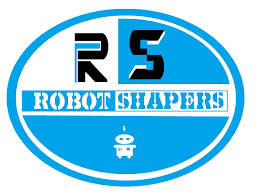
 Arindam Deshmukh
Arindam Deshmukh 






